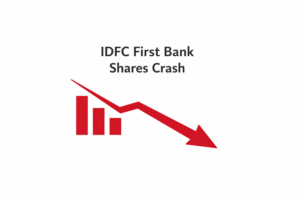Best fintech stocks in India: A primer

A digital payments revolution is sweeping India. At the heart of this revolution are fintech companies in India that leverage an innovative platform like the Unified Payments Interface (UPI) that facilitates free and fast transfer of money between accounts. However, the use of technology in finance—fintech for short—goes far beyond digital payments and covers a broad spectrum spanning areas such as credit and lending, insurance, investment, and wealth creation.
The increasing use of digital financial platforms for making payments, investments, and insurance has led to the emergence of fintech companies in India. The fintech sector in India is estimated to grow at a CAGR of 31% to reach $429 billion by 2029, according to the National Payments Corporation of India (NPCI), which manages the UPI platform. The immense growth potential of this sector makes it an attractive investment opportunity for retail as well as institutional investors.
We have listed some of the top fintech companies in India. You can research the fintech companies listed here and make an informed investment decision. Let’s dig in.
What are fintech stocks?
Fintech is a broad term representing organizations involved in financial technology, providing digital solutions for financial functions such as payments, lending, investments, banking, and other related areas. These companies primarily leverage technology to simplify traditional financial functions and use technology to offer innovative financial alternatives.
To be sure, the top fintech companies in India use technology to simplify and innovate lending, payments, investments, trading, and insurance.
An overview of fintech stocks in India
Listed fintech companies in India present a great value creation opportunity for investors. Here are the top 10 fintech companies in India based on market capitalization. You could include some of these companies in your portfolio to benefit from the Indian fintech growth story.
| No | Name | Market Cap (Rs. Cr.) | P/E | 1-year return | 3-year return |
| 1 | Bajaj Finance | 4,31,187 | 28 | -7.89% | -6.78% |
| 2 | Jio Financial Services | 2,02,733 | 126 | 44.56% | – |
| 3 | HDFC AMC | 93,550 | 42.3 | 60.19% | 63.32% |
| 4 | PB Fintech | 77,527 | 757 | 135.29% | 38.22% |
| 5 | One97 Communications (Paytm) | 47,898 | – | -20.53% | -53.02% |
| 6 | CDSL | 31,747 | 59.6 | 115.9% | 113.76% |
| 7 | Angel One | 27,298 | 20.7 | 11.8% | 133.02% |
| 8 | CAMS | 21,595 | 54.1 | 87.52% | 43.27% |
| 9 | KFin Technologies | 16,434 | 55 | 28.93% | – |
| 10 | Intellect Design Arena | 10,488 | 36.9 | 8.1% | 5.64% |
Data as of October 30, 2024. Source: Screener.in
Bajaj Finance Ltd., a non-banking financial company (NBFC), accepts deposits and is a major player in consumer lending. It has a diversified lending portfolio catering to retail, SME, and commercial customers, with a significant presence in urban and rural India. The firm also accepts public and corporate deposits and offers various financial services to its customers.
Jio Financial Services Limited (Jio Finance), a subsidiary of Reliance Industries, operates in the financial services sector. The company is a holding company that runs its financial services business through its consumer-facing subsidiaries namely Jio Finance Limited (JFL), Jio Insurance Broking Limited (JIBL), Jio Payment Solutions Limited (JPSL), and a joint venture with State Bank of India called Jio Payments Bank Limited (JPBL).
HDFC Asset Management Company Ltd is a leading asset management company in India. Incorporated in 1999, HDFC AMC is the investment manager for HDFC Mutual Fund. Its top products include a wide range of mutual fund schemes such as equity funds, debt funds, and liquid funds. HDFC AMC’s popular mutual fund schemes include HDFC Top 100 Fund, HDFC Balanced Fund, HDFC Small Cap Fund, and HDFC Tax Saver Fund.
PB Fintech Ltd, popularly known as Policy Bazaar, is India’s largest online platform for insurance and lending products through its flagship brands—Policybazaar and Paisabazaar— through which they provide convenient access to insurance, credit, and other financial products.
Paytm, India’s leading digital ecosystem for consumers and merchants, has built the largest payment platform. One97 Communications Ltd offers a variety of products and services, including mobile payments, digital wallets, e-commerce, financial services like loans and insurance, and ticketing services for movies and travel. The company operates primarily in India and has also expanded to Canada and Japan through strategic partnerships.
Angel One Ltd, a diversified financial services company, is primarily engaged in the business of stock, commodity, currency broking, and institutional broking. It provides margin trading facilities, depository services, and distribution of mutual funds, not to mention lending as an NBFC and functioning as a corporate agent of insurance companies. It is India’s leading full-service retail broking house, with more than 13.8 million clients and 4.3 million active clients on the NSE.
Central Depository Services (India) Limited (CDSL) is a leading securities depository in India, which plays a crucial role in the country’s financial sector. It is a Market Infrastructure Institution (MII), part of the capital market structure, providing services to all market participants—- exchanges, clearing corporations, depository participants (DPs), issuers, and investors. It is a facilitator for holding securities in the dematerialized form and an enabler for securities transactions.
Computer Age Management Services Limited (CAMS) is India’s largest mutual fund transfer agency, serving over 69% of assets of the Indian mutual fund industry. As an integral part of the India’s financial infrastructure, CAMS has built a reputation as the leading transfer agency to the Indian asset management industry and also functions as a technology-enabled service solutions partner to private equity funds, banks, and NBFCs.
KFin Technologies Limited is a leading technology-driven financial services platform. The company provides services and solutions to asset managers and corporate issuers across asset classes in India. It also provides investor solutions, including transaction origination and processing for mutual funds and private retirement schemes in Malaysia, the Philippines, and Hong Kong.
Intellect Design Arena Limited works globally in financial technology sector, providing banking, insurance, and other financial services. The company has a comprehensive portfolio of products across global consumer banking, central banking, risk and treasury management, global transaction banking, and insurance and is also engaged in software development.
We have discussed some of the best fintech companies in India.
Why invest in fintech stocks?
India has the potential to become the global fintech superpower in the near future. In fact, countries such as Brazil are inspired by India’s UPI initiative to launch similar products. The fintech sector presents a compelling growth opportunity, thanks to its disruptive technology, rapid penetration, and its ability to cater to evolving customer preferences.
You can partake in the ongoing fintech revolution in India by investing in fintech stocks. As a fintech investor, you can reap the benefits of the sector’s growth potential from capital gains on your investment once the company you choose to invest in starts growing.
A smart investment strategy for participating in the fintech growth story in India would be to hedge your investment bets by choosing 3 to 4 fintech stocks.
Factors to consider before you invest in fintech stocks
You should do your research before investing in top fintech stocks in India. Here are some criteria to evaluate a fintech company before making an investment.
- Regulations: Fintech is a dynamic sector that is subject to frequent changes in regulations framed by multiple regulatory authorities. Changes in regulation can impact the functioning of the company, in turn impacting its stock price.
- Trend and growth: Study the Indian fintech scenario and assess stocks in booming sectors such as insurance tech, payments solutions, and wealth tech.
- Financial health: Consider the financial stability of the company. Check if the firm is making profits and has good margins. In case it is a loss-making unit, check for growth in sales, increase in revenue, decrease in losses over time, etc.
- Technology: Technology is the underlying factor for a fintech company. Check if the company has a good tech stack and if the technology is versatile.
- User base: Customers form the heart of a company’s growth story. Evaluate a fintech company based on its user base and the growth of its user base over time.
- Data security: Research about the measures the company is taking to keep the user data safe. Data breaches can harm a company’s reputation and hurt profitability.
- Leadership: Learn about the people running the company and their vision for the firm’s future.
Risks associated with investing in fintech stocks
While fintech is a buzzing sector in India, it has its share of risks. Here are some of the risks associated with fintech companies in India.
- Regulations: Frequent changes in regulations can hurt fintech firms’ business models, impacting profitability.
- Competition: The fintech sector in India is highly competitive. This makes it difficult to crack the market and stand out.
- Cybersecurity: Fintech companies such as crypto exchanges and wealth management companies deal with people’s money. Such firms can be negatively impacted in the event of a hack or data breach.
- Changes in technology: Technology is the backbone of a fintech company. Keeping up with evolving technology can be challenging, which can hamper growth.
- Gaining and keeping customers: Fintech is a competitive space. With multiple players active in each segment, acquiring and retaining customers can be challenging.
These are some of the risks associated with fintech companies in India. The risks can vary depending on the vertical a company is active in.
Conclusion
The India fintech sector presents compelling investment opportunities for equity investors looking for long-term capital gains. The sector has multiple listed companies and many more fintech companies are expected to list in the coming years. Investors can make well-researched investment bets to benefit from the ongoing fintech revolution in India.
Disclaimer
The stocks mentioned in this article are not recommendations. Please conduct your own research and due diligence before investing. Investment in securities market are subject to market risks, read all the related documents carefully before investing. Please read the Risk Disclosure documents carefully before investing in Equity Shares, Derivatives, Mutual fund, and/or other instruments traded on the Stock Exchanges. As investments are subject to market risks and price fluctuation risk, there is no assurance or guarantee that the investment objectives shall be achieved. Lemonn do not guarantee any assured returns on any investments. Past performance of securities/instruments is not indicative of their future performance.
To read the RA disclaimer
Research Analyst - Gaurav Garg







